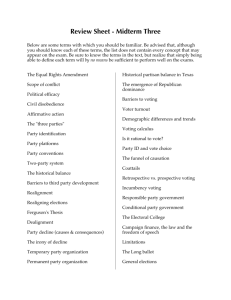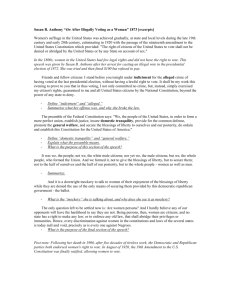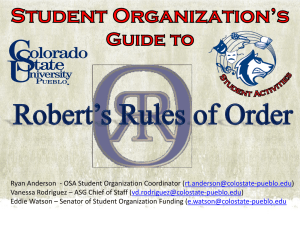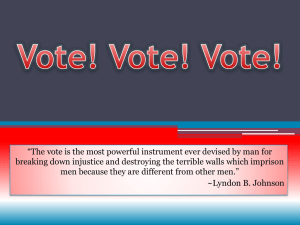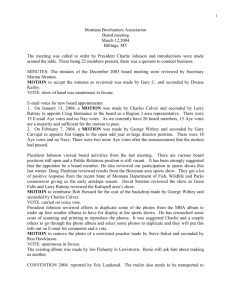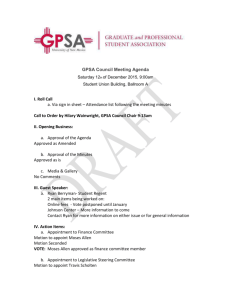Native American Enlightenment Association Constitution
advertisement
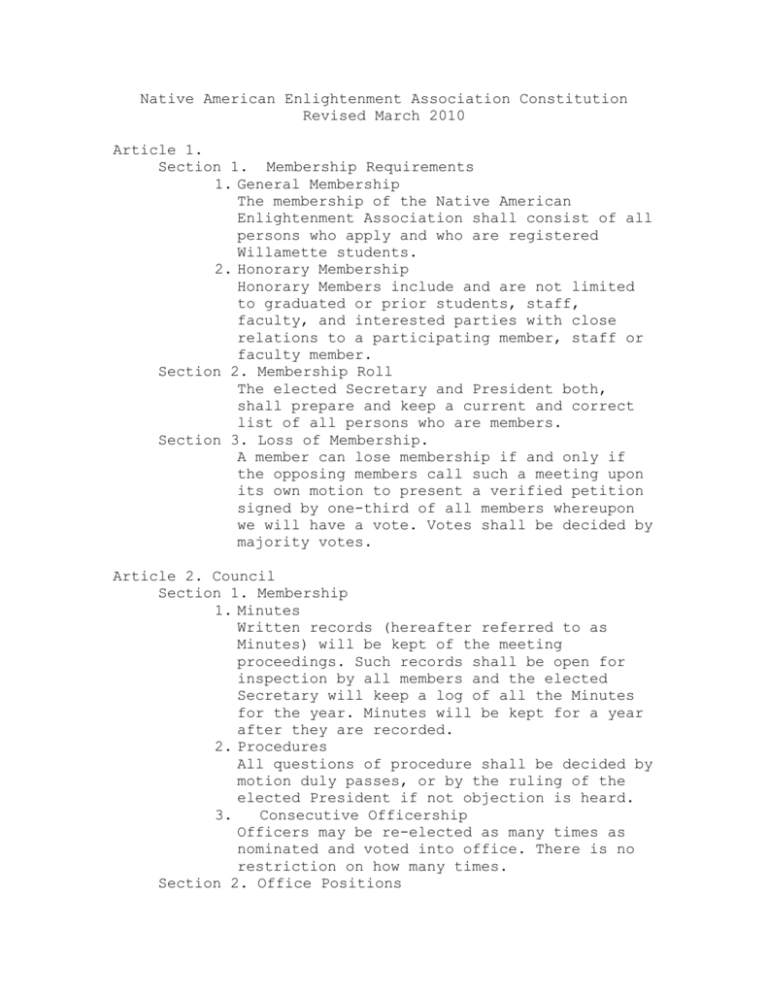
Native American Enlightenment Association Constitution Revised March 2010 Article 1. Section 1. Membership Requirements 1. General Membership The membership of the Native American Enlightenment Association shall consist of all persons who apply and who are registered Willamette students. 2. Honorary Membership Honorary Members include and are not limited to graduated or prior students, staff, faculty, and interested parties with close relations to a participating member, staff or faculty member. Section 2. Membership Roll The elected Secretary and President both, shall prepare and keep a current and correct list of all persons who are members. Section 3. Loss of Membership. A member can lose membership if and only if the opposing members call such a meeting upon its own motion to present a verified petition signed by one-third of all members whereupon we will have a vote. Votes shall be decided by majority votes. Article 2. Council Section 1. Membership 1. Minutes Written records (hereafter referred to as Minutes) will be kept of the meeting proceedings. Such records shall be open for inspection by all members and the elected Secretary will keep a log of all the Minutes for the year. Minutes will be kept for a year after they are recorded. 2. Procedures All questions of procedure shall be decided by motion duly passes, or by the ruling of the elected President if not objection is heard. 3. Consecutive Officership Officers may be re-elected as many times as nominated and voted into office. There is no restriction on how many times. Section 2. Office Positions 1. President Official Spokesperson for the Association Regulate Meetings Provide references and advice to members Keep detailed records of agendas, attendance and membership Facilitate events, lectures, etc. 2. Vice President Assume duties of the president in her or his absence 3. Secretary Record Minutes and all information discussed in the meetings Keep accurate files of attendance and Minutes Keep accurate role of membership Keep all records for no less than one year and up to three years 4. Treasurer Keep up Financial Records (up to 3 years) Direct all Financial Transactions Article 3. Vacancies Section 1. Missing meetings In the event that an official fails to attend three consecutive regular meetings, unless his or her written or understood excuse is accepted by the majority vote of other members, that position shall be declared vacant. Section 2. Acceptable excuses – voting unnecessary In the event that an officer is able to fulfill her or his duties but cannot attend a majority of meetings based on a class, sports, or like interference, the elected President has the authority to decide if the officer is excused without voting necessary. Section 3. Cannot Fulfill duties If an officer does so choose, she or he may step down from her or his position as officer. This will enact a Special Vote for an interim officer until the completion of the term. At the beginning of the next term the interim officer can be voted to retain the office. Section 4. Vote of No Confidence If an officer appears incapable of doing her or his duties, it is the right of the members to enact a Vote of No Confidence. They must bring evidence of a petition with at least one-third of members having signed it, as well as a list of grievances. This matter will then be put to vote. If a majority votes No Confidence, there will be a special vote to fill the vacancy. In the case of a president, the vice president will take the president’s role. Article 4. Proposals Section 1. Order Proposals shall be presented to the president before a meeting to retain order on the agenda. Any proposals not presented before the meeting may or may not be included at the end of a meeting. Section 2. Debate All proposals are subject to debate. Article 5. Voting Section 1. General Voting All items requesting a vote must be suggested then seconded. After a motion is seconded, it goes to vote. The majority wins. Section 2. Standard Officer Elections These occur at the end of a given school year to select the officer for the next year. Any member can run for officer. Officers must be nominated, and the nomination must be seconded. After a nomination has been seconded the nomination is put up to vote. Section 3. Special elections 1. Interim Officer Elections Special Elections can be put into effect if an officer steps down or there is a Vote of No Confidence resulting in expulsion from office. They must follow the same rules of a regular officer election, and may be put into effect at any time. The interim officer will remain officer until the next term when they must then run for office. 2. Mid-year elections These occur after a Step Down of Vote of No Confidence. They occur at the beginning of Spring term to install the officers for the last half of the year. This constitution was modeled after the constitutions of Willamette’s Performance Cars and the Constitution of the Confederated Tribes of the Coos, Lower Umpqua, and Siuslaw Indians of Oregon. The interests of students at Willamette brought about the creation of this organization. Its purpose is to enlighten its members to the cultural diversity of the Native American people. This association will help Native Americans to identify with an organization on campus and allow other students of different origins to be enlightened by the activities, debates and lectures this association may offer. This association is open to all and doesn’t discriminate on race, religion, orientation or creed. Our objective is to bring cultural diversity to the campus, and, the Pride of the past to the reality of the future. This constitution has been revised, edited, and by majority voted into being the official constitution of the Native American Enlightenment Association on the 11th of March 2010.




